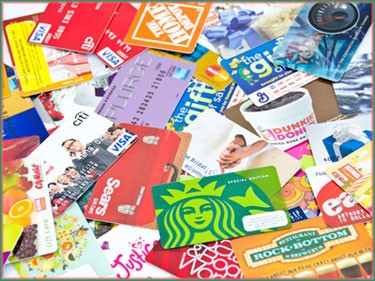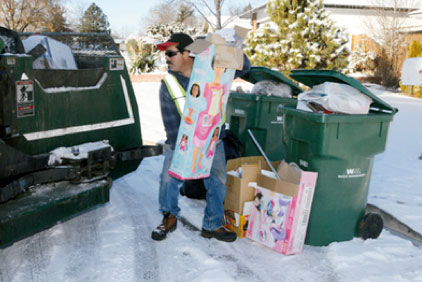The reindeer seem to be in overdrive this year, and Christmas Eve is approaching at what seems to be warp speed. Still, there is plenty of time left in the next couple of weeks for interesting and informative holiday-driven business features. Here’s a stocking full of ideas:
Performers.
My inboxes, snail and electronic, have been filling up lately with announcements for holiday pageants, plays and musicals at local professional and community theaters. It dawned on me that this must be a prime time of year for actors, musicians and others involved with producing everything from mall-sponsored skits to local renditions of “It’s a Wonderful Life” to holiday concerts to revues at tourist destinations such as Branson, Mo.
If you’re looking for a picturesque feature, why not take a look at employment in the world of live, holiday-related performances — how is it trending this year compared to past seasons, what are the pay and working conditions like for aspiring actors these days, and so on. The Actors Equity Association — the union for theater people — probably can discuss local conditions, as well as SAG-AFTRA, another union representing performers and other artists. IATSE represents technicians, stage managers and other crafts persons behind the scenes; I bet a lot of readers would be interested in learning about these occupations.
Gift cards.
Consumers will swap $118 billion in gift cards this year, says the CEB Group in its Gift Cards State of the Union 2013 report.
Are local merchants getting in on the act with better execution of gift cards and gift certificates? And if not, why not? A quick Google search turns up a variety consultants, software and services help small merchants run a gift card program; what are the roadblocks for companies that refuse to get on the gift-card train?

For a behind-the-scenes angle, here’s a neat USA Today story about the company behind the plastic tokens; one firm reaps $16 million annually, stamping out a million cards a week. Perhaps you can find similar in your neck of the woods.
Here’s a MarketWatch report that says $1 billion in gift cards goes unredeemed: One billion in gift cards go unredeemed. You might talk with merchants — especially at regional or locally headquartered chains — about how this is handled from an accounting standpoint; I’m sure they will be reluctant to characterize the unclaimed credits as windfalls though that is what they are. And that factoid might also be a springboard for a personal finance piece about re-selling gift cards at sites like CardPool.com; which gift-card swapping and selling sites offer the best deals?
And while the Credit CARD Act of 2009 put in some consumer safeguards that expanded redemption time and lowered balance-eroding fees, there still are gift-card caveats to make readers aware of: Check out this ABC News story about “tip tolerance” on gift cards — where computer systems check to make sure there’s enough on the card to allow for a tip, as well, at establishments like restaurants and salons. The process can cause confusion at checkout; you might ask local bistros and other tipping-oriented businesses how they handle “tip tolerance” when it comes to gift cards.
Holiday trash.
I don’t know why but solid-waste and recycling-related business stories are quite appealing as a reflection of consumer habits and the economy, and never more so than at the season of excess. This fact sheet from Stanford University says that Americans pitch 25 percent more waste between Thanksgiving and New Year’s Day than any similar period of the year, and that the billions of Christmas cards sold each year could fill a football field to a height of 10 stories.
Even the U.S. Environmental Protection Agency has a page about holiday waste, and the U.S. Department of Agriculture reported that Americans throw away 200 million pounds of edible turkey meat each year on Thanksgiving alone.
Someone has to deal with all of this consumer excess, so what better time for a look at the business of waste and recycling handling in your market? What are garbage pick-up services, landfill operators and the like seeing in terms of volume, in terms of service subscriptions and contracts, and the type of waste households are generating? What do the handlers deduce from this, about your local economy? Are more small businesses cutting out or cutting down on trash pickup to save costs, or vice versa? Are consumers generating more or less trash this season. Do lots of cardboard mail-order cartons bode ill for Main Street merchants? I think there is a lot to be gleaned from insights gleaned by the people and companies who see first-hand what households are willing to part with.
And with gadgets and gizmos topping many wish lists, another look at electronic waste may be worthwhile — if nothing else, as a “where to get rid of your old models” consumer coping piece. The Electronics Takeback Coalition offers helpful information, and your county’s recycling agency may be able to provide local resources.











